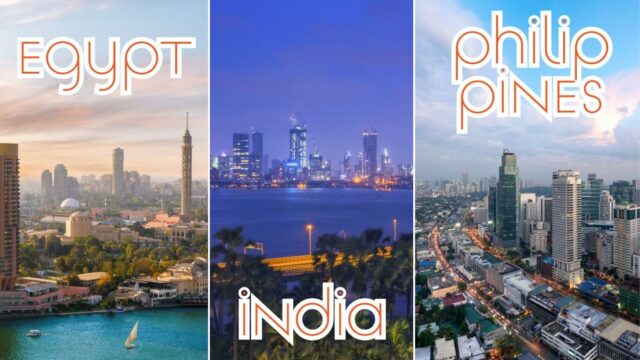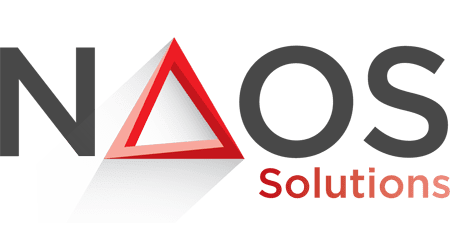Call center outsourcing in Egypt is becoming an attractive option for customer experience leaders who want to scale operations, reduce costs, and effectively serve multilingual markets. If you’re exploring new outsourcing destinations or rethinking your current strategy, you’re likely asking, “Could Egypt be the right fit for my contact center operations?”

In this article, we’ll give you the insights you need to make that decision confidently. You’ll learn how Egypt compares to outsourcing giants like India and the Philippines, understand its opportunities, and get a balanced view of the challenges you must consider.
By the end of this guide, you’ll know whether Egypt’s outsourcing strengths align with your goals — and what steps to take next to achieve them.
WHY EGYPT? EMERGING STRENGTHS IN CALL CENTER OUTSOURCING
Egypt has many advantages that make it a burgeoning BPO powerhouse, from its strategic location to its highly skilled, multilingual workforce. The country’s average salaries and operational costs are more affordable than popular BPO hubs like India and the Philippines.
Egypt’s popularity as an outsourcing hub is on the rise. The country ranks 23rd globally in Kearney’s Global Services Location Index and 9th in the Offshore BPO Confidence Index in 2024. Here are a few of the many reasons behind this success:
Growing Multilingual Talent Pool
Egypt produces over 667,500 university graduates every year. Around 30–40% are fluent in English, Arabic, French, German, and Spanish, making it one of the most linguistically diverse countries in the MENA region. The country is home to many British, French, and German universities and international language schools.
In addition, 80% of Egypt’s working population speaks English and other European languages. Meanwhile, offshore destinations have much lower multilingual rates, at 20–65%. This can be a huge advantage for companies hoping to outsource their call center operations.

Strategic Time Zone Advantage
Since Egypt is located in the Eastern European Time (EET) zone, it bridges the gap between Europe and North America. This time zone allows for overlapping working hours with European countries, perfect for nearshore call center outsourcing.
For instance, Egypt is only a few hours ahead of major European markets, allowing real-time interactions during European business hours. It’s also only 6 to 9 hours ahead of the US, depending on the specific US time zone. This allows Egyptian BPO operations to handle tasks during US nighttime and complete work before the start of the next business day.
Competitive Costs
One of the strongest reasons companies consider call center outsourcing in Egypt is the significant cost advantage. Operational costs in Egypt are up to 80% lower than in European outsourcing hubs like Poland and Turkey, making it one of the most affordable destinations for contact center services in the EMEA region.
This cost efficiency spans across multiple areas:
- Lower labor costs: The average monthly salary for a call center agent in Egypt is around US$139.
- Affordable infrastructure and office space: Egypt offers competitive commercial property rental rates in key outsourcing zones like Smart Village and Cairo Technology Park, further reducing setup costs.
- Favorable tax incentives: Under the Digital Egypt Strategy, the Egyptian government has introduced tax exemptions and financial incentives to attract foreign investors in the BPO sector.
Yet, these savings don’t come at the expense of quality. Egyptian BPO providers have invested heavily in training, language development programs, and technology infrastructure to ensure high service standards. This is critical for companies that want to balance cost efficiency with customer satisfaction, particularly those handling multilingual customer bases or specialized technical support.
For decision-makers in customer experience and operations, this combination of affordability and quality opens new possibilities: scaling faster, improving margins, or reallocating budget to innovation without compromising service delivery.
In short, Egypt’s competitive costs make it a cheaper option and a more intelligent, sustainable choice for businesses aiming for long-term CX excellence.
Strong Education Pipeline
As of the 2022–2023 academic year, Egypt’s higher education sector has seen significant growth, with 3.7 million students enrolled, marking a 5.7% increase from the previous year. This upward trend underscores Egypt’s expanding talent pool, which is particularly beneficial for industries seeking skilled, multilingual professionals.

Furthermore, Egypt’s education system heavily focuses on technical and vocational training, with over 2,900 institutions offering TVET programs to around 2 million students. Specialised training programs in the country focus on developing customer service skills and preparing graduates to handle all kinds of customer interactions.
Supportive Government Policies
The Egyptian government has made many investments to position the country as a competitive BPO hub. For instance, the Digital Egypt Strategy for the Offshoring Industry (2022-2026) plans to triple export revenue from offshoring services and create 215,000 job opportunities by 2026.

More importantly, total investments in the ICT sector surged to $4.2 billion in 2022 — a 20% increase from the previous year. The government has also established technology parks, such as Smart Village and Cairo Technology Park, to attract foreign investors.
They’ve also connected 5,300 government buildings with fiber-optic cables as part of the Digital Egypt Project, with plans to expand this to 32,000 buildings. Egypt now leads Africa in fixed internet speed at an average of 76.4 Mbps.
EGYPT VS. INDIA VS. THE PHILIPPINES: HOW DOES IT STACK UP?
Let’s see how Egypt measures against BPO giants like India and the Philippines, two of the most popular outsourcing hubs globally. Their outsourcing industries reached $177 billion and $32.5 billion, respectively, in 2022. However, Egypt’s outsourcing sector is also on the rise, growing by a whopping 54.2% to reach $3.7 billion in 2023.
| Egypt | India | The Philippines | |
| Labor Costs | Lowest
$139 USD per month |
Lower
$176 USD per month |
Highest
$371 USD per month |
| Language Capabilities | English, Arabic, French, German
28.1 million English speakers |
English, Hindi, Tamil 129 million English speakers | English, Filipino
39.4 million English speakers |
| Infrastructure Maturity | Fastest internet in Africa | Advanced IT ecosystem | Reliable but less mature |
| Regulatory Environment | Digital Egypt Strategy | Long-standing incentives | Stable framework |
| CX Specialisation | Multilingual CX, technical support | Complex processes across industries | Voice-based services |
| Market Size | $3.7 billion | Largest share in Asia-Pacific
$177 billion |
$32.5 billion |
Labor Costs
In the Philippines, entry-level salaries for customer service roles average ₱21,391 (US$371) per month. Meanwhile, India previously had the lowest customer service wages in the world, with call center employees earning ₹15,270 (US$176) per month. However, Egypt has dethroned it, with an average call center salary of EGP 7,167 (US$139) per month.
Language Capabilities and Cultural Alignment
India has the largest English-speaking population after the US, with 129 million speakers. Due to colonial history, there’s also a lot of cultural familiarity with British and Australian businesses. The Philippines also has high English proficiency (EF EPI score of 61.84) and cultural alignment with US-based companies due to historical ties as a former US territory.
Meanwhile, Egypt has a multilingual workforce fluent in Arabic, English, French, and German. At least 28.1 million Egyptians speak English and have a strong cultural alignment with MENA and Europe.
Infrastructure Maturity
India has an advanced IT infrastructure thanks to its mature tech ecosystem and extensive cloud-based solutions. It also dominates Asia-Pacific’s outsourcing market.
The Philippines is home to reliable infrastructure focused on voice-based services, but its tech capabilities are less mature than India’s. Meanwhile, Egypt leads Africa in fixed internet speeds.
Regulatory Environment and Compliance
The Indian government has a long history of support for BPO through incentives like the India BPO Promotion Scheme (IBPS) and various tax benefits. Meanwhile, the Filipino government also heavily backs BPO growth since the industry contributes 10% to the annual GDP.
Egypt also supports call center outsourcing through policies like the Digital Egypt Strategy.
CX Specialisation
India has a broad portfolio in CX specialisation, including IT services, financial analysis, technical support, and KP.
Meanwhile, the Philippines focuses on voice-based customer service for industries like retail and finance.
Egypt specialises in high-value services such as technical support, automotive software, and multilingual CX for the MENA and European markets.
Egypt has become a regional hub for business process outsourcing (BPO), particularly serving the Gulf Cooperation Council (GCC) countries. Its strategic location offers proximity and time zone alignment with major Gulf cities, facilitating seamless collaboration. Moreover, Egypt’s workforce is culturally aligned with the Gulf region, ensuring effective communication and service delivery. These factors have made Egypt an increasingly attractive destination for Gulf businesses seeking cost-effective, high-quality outsourcing solutions.

Contact Center Outsourcing Market
India has the largest share of Asia-Pacific’s contact center outsourcing market, which is projected to grow at a CAGR of 7.45% through 2032. India’s contact center industry employs 3.9 million people.
The Filipino outsourcing industry contributes $25 billion annually to the GDP, rapidly catching up to India’s market dominance. It has 1.3 million call center agents.
Meanwhile, Egypt’s BPO market is growing, and digital exports from the country are valued at $6.2 billion (FY2022/2023).
Market Saturation: Easier Access to Talent, Less Competition
While India and the Philippines dominate the global BPO market, with $177 billion and $32.5 billion in outsourcing revenue, respectively, their success has led to market saturation. These countries face high competition for skilled agents, wage inflation, and growing talent shortages in key cities like Manila and Bangalore.
By contrast, Egypt’s outsourcing industry is rapidly growing but less saturated, giving international companies a larger hiring pool with lower competition. This translates to shorter recruitment timelines, more affordable wages, and flexibility to scale operations.
For businesses seeking a balance of quality, affordability, and ease of entry, Egypt offers a compelling alternative to more saturated outsourcing hubs.
THE REAL CHALLENGES OF OUTSOURCING IN EGYPT
As advantageous as Egypt is for outsourcing call center operations, it has its fair share of challenges.
Perceived Stability Concerns
Egypt’s political and economic stability can deter some international clients. For instance, key economic sectors like construction and extractives rely heavily on military networks, leading to low productivity and high informal unemployment.
However, the outsourcing sector has been resilient over the past five years. Egypt’s outsourcing sector has experienced significant expansion. Notably, in the fiscal year 2022/2023, the industry grew by 54.2%, with its added value increasing from $2.4 billion to $3.7 billion. This growth trajectory underscores the sector’s robustness and its capacity to thrive despite broader economic challenges.
Internet Bandwidth Inconsistencies
While Egypt leads Africa in fixed internet speeds, certain zones outside Cairo still have inconsistent bandwidth. However, the country heavily invests in ICT infrastructure to address these regional disparities.
Need for Stronger Global Brand Awareness
Compared to established BPO hubs, Egypt still needs stronger global brand recognition as an outsourcing powerhouse.
The country ranks 23rd globally in Kearney’s Global Services Location Index, behind legacy markets like India.
IS EGYPT THE RIGHT FIT FOR YOUR OUTSOURCING NEEDS?
There’s no one-size-fits-all outsourcing solution — it all depends on your particular call center needs. If your company is in the commerce, fintech, SaaS, or healthcare sector, it may benefit from an Egyptian BPO.
The country has a multilingual workforce proficient in English, French, German, and Arabic. Its strategic location, within the same time zone as many European countries, allows for seamless communication with European markets.
With over 3.7 million students enrolled in higher education, Egypt offers a steady pipeline of educated, multilingual talent ready to enter the workforce. This growing talent pool ensures companies can confidently access the skills they need to build and scale high-performing call center teams.
However, if your company has specialised call center needs, such as massive volumes or proficiency in Japanese or Korean, established markets like India or the Philippines might be more suitable.
Conclusion
Egypt has decisively moved beyond the ‘emerging alternative‘ label. It’s quickly establishing itself as a reliable powerhouse for businesses that need a scalable, multilingual, and culturally resonant call center team.
If you’re also looking to capitalise on these benefits and make outsourcing easier, NAOS Solutions is the perfect place for expert guidance and tailored solutions. We can help you assess your outsourcing needs and determine if Egypt is the right choice for your business.
Contact NAOS Solutions today to explore how we can improve your CX and operational efficiency with the help of call center outsourcing.

